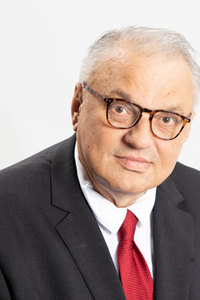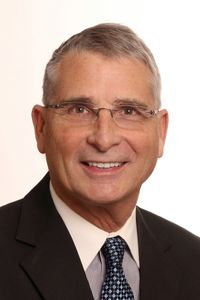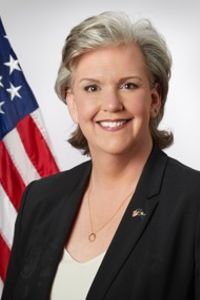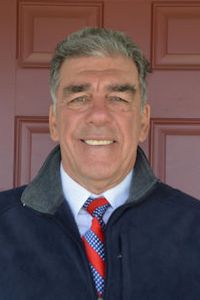George Davis (Maryland)
In 2022, Republican George Davis mounted an unsuccessful campaign for the U.S. Senate seat in Maryland currently held by Democrat Chris Van Hollen. Davis lost decisively in the Republican primary in July 2022, falling short in his bid to take on the incumbent Van Hollen in the November general election.
Davis’ disappointing fifth-place finish illustrates the challenges facing lesser-known, underfunded candidates seeking to win competitive statewide primaries. While Davis sought to portray himself as an outsider opposed to the political establishment, his lack of name recognition, government experience, and fundraising hampered his ability to stand out.
Nevertheless, Davis’ Senate run highlighted his political views and personal background. Examining his campaign sheds light on Republican politics in Maryland and the dynamics shaping federal elections in 2022.
Background on George Davis
Early Life and Education
George Davis was born on October 6, 1958 in Hollywood, Maryland. He spent his childhood in St. Mary’s County in southern Maryland.
For his higher education, Davis attended the University of Maryland College Park. He graduated in 1980 with a bachelor’s degree in electrical engineering.
Professional Career
After completing his engineering studies, Davis embarked on a career as an engineer. He worked for over 35 years as an electrical engineer and engineering manager.
Much of Davis’ engineering experience focused on electronics, communications systems, and information technology. He worked on developing radar systems, satellite networks, and other complex technological projects requiring electrical engineering expertise.
In addition to hands-on engineering, Davis took on managerial roles overseeing teams of engineers. This experience equipped him with leadership abilities that he would later cite when running for public office.
Political Career Before 2022 Senate Run
Prior to 2022, Davis did not have experience running for or holding elected political office. His Senate campaign marked his first major foray into electoral politics.
However, Davis was involved with the Republican Party in Maryland before launching his Senate bid. He served as a precinct chairman for the GOP and was active with Republican groups at the county level.
Davis sat on the executive committee of the St. Mary’s County Republican Central Committee. Through this local party leadership position, he gained familiarity with grassroots political activism that informed his future candidacy.
Davis’ 2022 Maryland Senate Campaign
In 2022, Davis decided to pursue higher office and set his sights on the U.S. Senate seat held by two-term Democratic incumbent Chris Van Hollen.
Republican Primary
To become the GOP nominee against Van Hollen, Davis first had to win the Republican primary on July 19, 2022. He was one of 11 Republican candidates in a crowded primary field.
Davis faced an uphill battle from the outset as a first-time candidate lacking name identification. He was not viewed as one of the frontrunners going into the primary.
The key issues Davis emphasized during the primary campaign included:
- Fiscal Responsibility – He stressed the need to reduce government spending and attacked deficit spending under the Biden administration.
- Immigration – Davis adopted a conservative stance on immigration, calling for enhanced border security measures and limits on refugee resettlement.
- Foreign Policy – He criticized foreign aid expenditures and military interventionism, favoring a less interventionist foreign policy approach.
- Social Issues – On abortion, Davis took a pro-life stance. He expressed support for gun rights and religious freedom as well.
In his campaign messaging, Davis portrayed the federal government as bloated, inefficient, and burdened by political gridlock. He characterized career politicians as out-of-touch with ordinary Americans.
Davis billed himself as the common-sense outsider choice. He argued his engineering background equipped him to approach legislative problems pragmatically and find workable solutions.
However, Davis’ campaign never gained much momentum or financial support. He was not viewed as a formidable contender for the nomination.
Primary Results
When Republican primary voters cast their ballots on July 19, Davis came up well short. He finished fifth overall, capturing just 8.7% of the vote.
The winner of the 11-candidate primary was Chris Chaffee, who received 20.8% of the vote. Chaffee went on to become the GOP nominee against Van Hollen in November.
Davis’ vote share was less than half that of Chaffee’s. His fifth-place result demonstrated Davis’ inability to make major inroads with Republican voters during his maiden political run.
Following his primary defeat, Davis did not continue his Senate bid. He conceded the race and endorsed Chaffee as the Republican nominee versus Van Hollen.
Chris Van Hollen’s Background
Chris Van Hollen, the Democratic incumbent who defeated Republican challenger Chris Chaffee in Maryland’s 2022 Senate general election, has a lengthy political background in contrast to the inexperienced George Davis.
Early Life and Education
Chris Van Hollen was born in Karachi, Pakistan on January 10, 1959. His father served as a Foreign Service officer for the U.S. State Department.
Van Hollen attended Swarthmore College, graduating in 1983 with a bachelor’s degree in philosophy. He continued his studies at Harvard University, earning a master’s degree in public policy in 1985.
Professional Career
After completing his education, Van Hollen worked briefly as a legislative assistant for Republican Senator Charles Mathias of Maryland.
However, most of Hollen’s early career was spent working for Democratic politicians and organizations. He served as a staff member on the Senate Foreign Relations Committee and the House Government Operations Committee.
Van Hollen also worked for the Center for Defense Information and Public Citizen, gaining expertise in legislative policy and the workings of Congress.
Political Career Before 2022 Election
Van Hollen was first elected to public office in 1990 as a member of the Maryland House of Delegates. He served in the state legislature until 1995.
In 1995, Van Hollen won election to represent Maryland’s 8th congressional district in the U.S. House of Representatives. He spent the next 12 years serving in Congress and building his political profile.
Van Hollen sat on the House Budget Committee and championed fiscal discipline. He also demonstrated liberal views on most social issues.
In 2002, Van Hollen secured the position of chairman of the Democratic Congressional Campaign Committee. He helped the Democratic Party retake control of Congress in the 2006 midterm elections.
In 2016, Van Hollen ran for Maryland’s open U.S. Senate seat following Senator Barbara Mikulski’s retirement announcement. He easily won the Democratic primary and general election, succeeding Mikulski.
Van Hollen’s first term in the Senate established him as a high-profile Democrat on issues such as healthcare, the environment, education, and the federal budget. He maintained a strongly liberal voting record.
2022 Maryland Senate General Election
As the 2022 election approached, Van Hollen was favored to secure re-election to a second term. His foremost opponent was Republican Chris Chaffee.
Van Hollen vs. Chaffee
Chris Chaffee, an accountant and political novice, secured the GOP Senate nomination after defeating George Davis and other candidates in Maryland’s Republican primary.
Chaffee faced extremely long odds trying to unseat Van Hollen. He was far less well-known and financially outmatched compared to the Democratic incumbent.
Van Hollen touted his efforts in Congress to lower prescription drug prices, protect the Chesapeake Bay, and increase infrastructure spending in Maryland. He emphasized his liberal positions on social issues as well.
Meanwhile, Chaffee criticized Van Hollen as a prototypical tax-and-spend Democrat. He also attempted to link Van Hollen to inflation and economic difficulties under the Biden administration.
However, Chaffee struggled to put together a competitive, visible campaign against such a seasoned political veteran. He lacked the name identification and fundraising capabilities to seriously threaten Van Hollen.
Key Issues and Themes
- Abortion – With the overturning of Roe v. Wade, contrasting views on abortion access took center stage. Van Hollen vowed to protect abortion rights, while Chaffee favored allowing states to impose restrictions.
- Economy – Chaffee sought to tie Van Hollen to inflation and sluggish economic indicators under Democratic leadership in Washington. Van Hollen placed blame for the economy on pandemic impacts and the war in Ukraine.
- Crime – Chaffee hit Van Hollen as being soft on crime and supporting the defund police movement. Van Hollen touted his support for law enforcement funding and moderate criminal justice reforms.
- Environment – Van Hollen showcased his efforts to combat climate change and pollution in the Chesapeake Bay region. Chaffee criticized some environmental regulations as burdensome for businesses.
- Education – Van Hollen emphasized his work to increase education funding and make college more affordable. Chaffee argued excessive federal spending has not improved academic outcomes.
Election Results
When Maryland voters cast their ballots on November 8, Van Hollen coasted to re-election as expected. He defeated Chaffee handily, capturing 65.8% of the vote to Chaffee’s 34.1%.
Van Hollen outperformed Chaffee by wide margins in the heavily Democratic population centers of Baltimore and the Washington D.C. suburbs that hold great sway in Maryland elections.
Chaffee was unable to make serious inroads against the well-established Van Hollen, who will now serve a second six-year Senate term through 2028.
Analysis of Davis’ Unsuccessful Senate Bid
George Davis entered the 2022 Maryland Senate race as a largely unknown first-time candidate and exited with a lackluster primary showing. Examining why Davis fell short reveals much about the state’s politics.
Factors Leading to Primary Defeat
Several key factors contributed to Davis’ fifth-place finish in the GOP Senate primary:
- Funding Disadvantage – Davis raised little money for his campaign and was heavily outspent by other Republican contenders, hampering his ability to build name recognition.
- Limited Government Experience – Davis’ lack of background in elected office deprived him of contacts and campaign infrastructure that other candidates leveraged.
- Crowded Primary Field – Having 10 other Republicans in the primary diluted the vote and made it difficult for Davis to stand out from the pack.
- Moderate Track Record – As a GOP moderate, Davis faced challenges appealing to an increasingly conservative Republican primary electorate in Maryland.
- Low Name Recognition – Davis had limited pre-existing name ID among Maryland Republican voters compared to some primary rivals.
Critiques of Davis’ Campaign
Analysts pointed to strategic missteps that Davis made over the course of his Senate campaign:
- Messaging Failures – Davis did not establish a clear rationale for his candidacy and lacked effective messaging distinguishing him from the field.
- Missed Opportunities – He did not maximize potential avenues for exposure such as candidate forums, debates, and speaking events during the primary season.
- Grassroots Weakness – Davis failed to cultivate an enthusiastic grassroots volunteer base to propel his underdog bid and reach voters directly.
- Demographic Shortcomings – He struggled to make inroads with critical Maryland GOP constituencies such as rural and suburban voters.
Impact on Maryland GOP
Despite Davis’ fifth-place primary finish, his Senate run still offered some insights regarding dynamics within the Maryland Republican Party:
- Ideological Divisions – The primary showcased fractures between the GOP’s moderate and conservative factions that have impeded the party’s success in Maryland’s recent statewide elections.
- Leadership Deficiencies – Davis’ loss highlighted the inability of state Republican leaders to coalesce around and support top-tier challengers against entrenched Democrats.
- Geographic Challenges – His poor performances in suburban areas reflected the party’s declining strength in suburban communities that were once GOP strongholds.
- Demographic Struggles – The Senate primary electorate skewed older, whiter, and more rural – underscoring issues the GOP has connecting with the state’s diverse electorate.
Davis’ Career and Politics After 2022
Following his unsuccessful Senate run, Davis returned to private life but continues to stay engaged in politics and public policy.
Reaction to Election Loss
Davis accepted his primary defeat graciously without levying any allegations of impropriety. He thanked his supporters and congratulated winner Chris Chaffee.
Davis acknowledged that being a first-time candidate with low name recognition was a major hurdle in the primary. He expressed respect for the democratic process and Maryland voters’ decision.
Political Future
Davis has not ruled out potentially running for elected office again in the future. However, he has indicated that he has no definitive plans to launch another campaign as of now.
Davis seems content to focus his current political involvement on party-building, grassroots activism, and policy discussions rather than serving as an active candidate.
Current Work and Advocacy
After ending his Senate bid, Davis resumed his engineering career but also became more active with political groups and causes.
He serves on the board of the League of Women Voters of St. Mary’s County, working to boost civic engagement and voter participation.
Davis also volunteers teaching adults to read and obtain GEDs to overcome illiteracy and improve job skills.
Conclusion
George Davis’ fifth-place primary finish in Maryland’s 2022 GOP Senate contest reflects the difficulties facing unknown candidates seeking to win their first political race in a statewide election. Davis lacked the name recognition, fundraising network, campaign experience, and voter support needed to be competitive. Nevertheless, his Senate run provides insights into his political views and the dynamics shaping both Maryland politics and national elections in 2022. Davis fell short in his initial electoral foray but could potentially mount a future campaign armed with the lessons from this losing effort as he continues public service in other capacities.
FAQs
What prior political experience did George Davis have before his 2022 Senate run?
Davis did not have experience as an elected official before running for Senate. However, he was involved with Republican Party politics at the local level in Maryland as a precinct chairman.
How much funding did Davis raise for his Senate campaign?
Financial disclosure records indicate Davis raised only about $15,000 for his 2022 Senate bid, leaving him very underfunded compared to other GOP primary candidates.
What percentage of the vote did Davis receive in the Republican primary?
Davis finished fifth out of 11 candidates in the primary, capturing just 8.7% of the overall vote.
Who won the Maryland Republican primary that Davis competed in?
Chris Chaffee won the crowded 11-candidate GOP Senate primary with 20.8% of the vote, going on to become the Republican nominee in November.
Did Davis continue his campaign after losing the primary?
No, Davis conceded the race after the primary results were finalized. He did not pursue his Senate bid any further but endorsed nominee Chris Chaffee.








